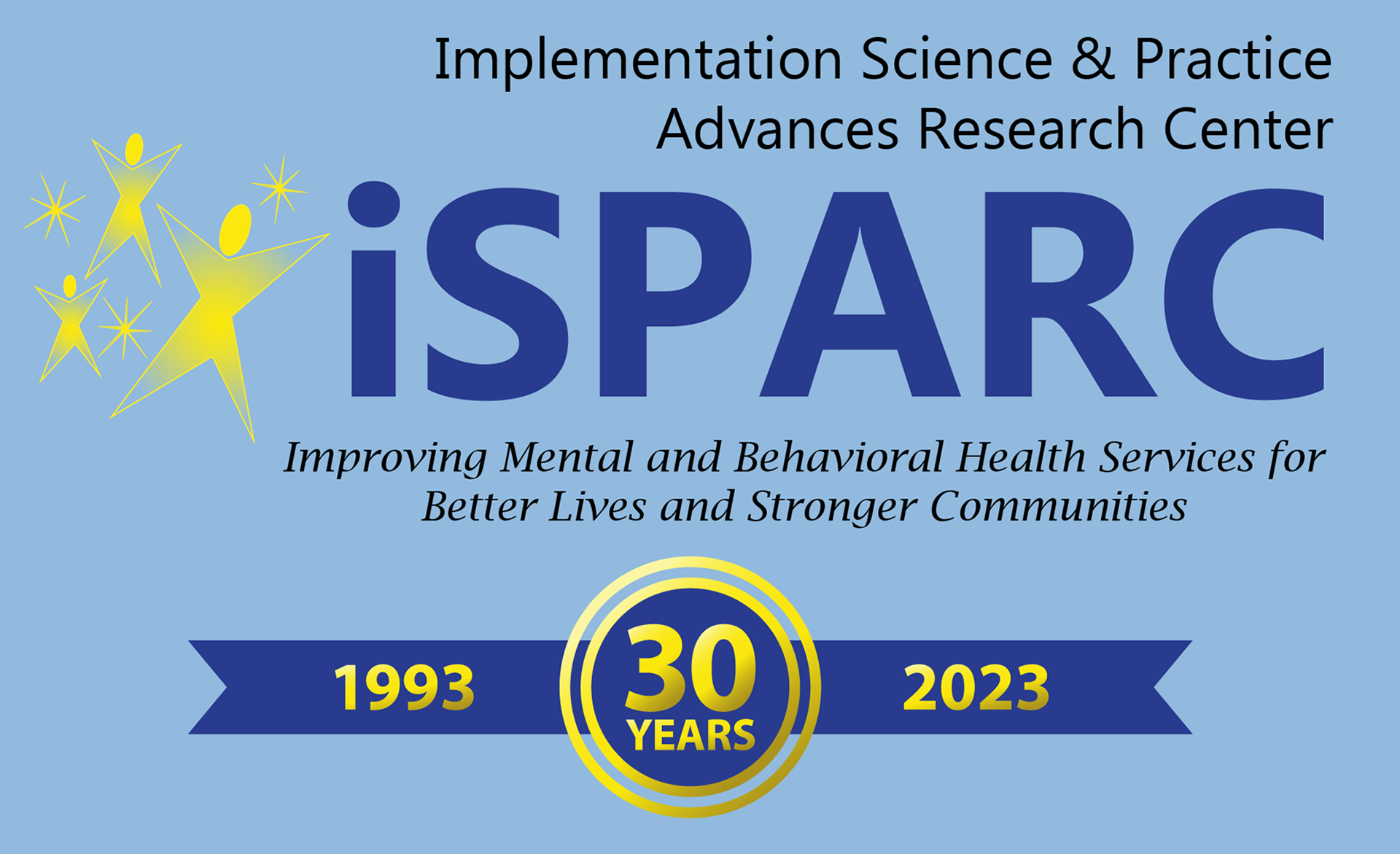New project at SPARC looking at creating the ability to screen Deaf women for perinatal depression!
Date Posted: Thursday, January 25, 2018Creating the Capacity to Screen Deaf Women for Perinatal Depression
Study Team: Melissa L. Anderson, Ph.D., Kelly Wolf Craig, Ph.D., Kathleen Biebel, Ph.D., and two Deaf Community Advisors (T.B.D.)

Melissa Anderson, Kelly Wolf Craig, and Kate Biebel were recently awarded a UMCCTS Pilot Project Program grant for their project - Creating the Capacity to Screen Deaf Women for Perinatal Depression. This is a one-year, community-engaged study to develop an American Sign Language (ASL) translation of the Edinburgh Postnatal Depression Scale (EPDS). They will conduct depression screening interviews with 50 Deaf perinatal women (i.e., pregnant or within one year postpartum) from across the nation, and perform preliminary psychometric analyses on the resulting data.
Scope of the Problem
There are approximately 1 million Deaf women in the U.S. who depend on ASL for communication.1,2 Deaf women are underserved in both medical and psychiatric settings,3 and are two to three times more likely to develop mental health problems than their hearing peers.4,5 Similar to women from other sociolinguistic minority groups, Deaf women report long histories of negative experiences in the healthcare system, largely due to a lack of sign language access.1
Deaf women become pregnant and enter motherhood at rates similar to hearing women;3,6 however, Deaf women attend fewer prenatal care appointments, receive less information from their physicians, are less satisfied with physician concern and quality of communication, and are less satisfied overall with their prenatal care.3 These barriers persist after childbirth, leaving Deaf mothers with little professional support for struggles with postnatal healthcare,1 breastfeeding,7 and childcare.6
Importance of Screening for Perinatal Depression
Combined with pre-existing mental health disparities in the Deaf community,4,5 such barriers leave Deaf women especially vulnerable to development or exacerbation of depression during the perinatal period.3 The risk of suicide is very high in women with perinatal depression, with maternal suicide accounting for 20% of deaths among women with perinatal depression.8 The children of depressed mothers are also at risk, with increased likelihoods of delayed psychological, cognitive, neurological, and motor development, and avoidant and distressed behavior.9
In 2015, the U.S. Preventive Services Task Force, the American College of Obstetricians and Gynecologists,10,11 and other stakeholders9,12-15 recommended depression screening as an evidence-based standard of perinatal care for all women – the first critical step to direct women to treatment. Yet, gold standard screening tools such as the Edinburgh Postnatal Depression Scale (EPDS) are not accessible to Deaf women due to severe disparities in English literacy and health literacy.16-18 As such, it is critical to develop and validate tools to screen for depression among Deaf perinatal women so that they may access the same standard of care as all perinatal women.
Research Activities
This innovative study will:
- Produce the first validated, Deaf-accessible perinatal depression screening instrument, enabling obstetric providers to address Deaf women’s long-standing mental health disparities.
- Develop and test a novel, community-engaged clinical and translational methodology for a unique subset of the population with critical need for personalized behavioral health assessment. This study is especially notable for its bi-directionality between community and academia, by cultivating a Deaf-engaged research team inclusive of a Deaf Co-Investigator and two Deaf Community Advisors - Deaf laypersons with native ASL fluency and expertise in Deaf culture.
- Leverage state-of-the-art, Deaf-accessible technologies to recruit and enroll a national sample of Deaf perinatal women, including videophones for the Deaf, REDCap, and the e-Consent platform.
The project described is supported by the National Center for Advancing Translational Sciences (NCATS), National Institutes of Health, through Grant UL1TR001453. The content is solely the responsibility of the authors and does not necessarily represent the official views of the NIH.
References
1 Steinberg, A. G., Wiggins, E. A., Barmada, C. H., & Sullivan, V. J. (2002). Deaf women: Experiences and perceptions of healthcare system access. Journal of Women's Health, 11(8), 729-741. doi:10.1089/15409990260363689
2 Mitchell, R. E., Young, T. A., Bachleda, B., & Karchmer, M. A. (2006). How many people use ASL in the United States? Why estimtes need updating. Sign Language Studies, 6(3), 306-335. doi:10.1353/sls.2006.0019
3 O'Hearn, A. (2006). Deaf women's experiences and satisfaction with prenatal care: a comparative study. Family Medicine, 38(10), 712-716.
4 Fellinger, J., Holzinger, D., & Pollard, R. Mental health of Deaf people. The Lancet, 379(9820), 1037-1044. doi:10.1016/S0140-6736(11)61143-4
5 Kvam, M. H., Loeb, M., & Tambs, K. (2007). Mental health in Deaf adults: Symptoms of anxiety and depression among hearing and Deaf individuals. The Journal of Deaf Studies and Deaf Education, 12(1), 1-7. doi:10.1093/deafed/enl015
6 Smeltzer S. C. (2007). Pregnancy in women with physical disabilities. Journal of Obstetric, Gynecologic, & Neonatal Nursing, 36(1), 88-96.
7 Chin, N. P., Cuculick, J., Starr, M., Panko, T., Widanka, H., & Dozier, A. (2013). Deaf mothers and breastfeeding: do unique features of Deaf culture and language support breastfeeding success? Journal of Human Lactation, 29(4), 564-571. doi:10.1177/0890334413476921
8 Lindahl, V., Pearson, J. L., & Colpe, L. (2005). Prevalence of suicidality during pregnancy and the postpartum. Archives of Women’s Mental Health, 8(2), 77-87. doi:10.1007/s00737-005-0080-1
9 Gjerdingen, D. K., & Yawn, B. P. (2007). Postpartum depression screening: importance, methods, barriers, and recommendations for practice. Journal of the American Board of Family Medicine, 20(3), 280-288. doi:10.3122/jabfm.2007.03.060171
10 American College of Obstetricians and Gynecologists. (2006). Committee opinion no. 343: Psychosocial risk factors: Perinatal screening and intervention. Obstetrics and Gynecology, 108(2), 469-477.
11 Gynecologists ACoOa. (2010). Committee opinion no. 453: Screening for depression during and after pregnancy. Obstetrics and Gynecology, 115(2 Pt 1), 394-395. doi:10.1097/AOG.0b013e3181d035aa
12 Kuosmanen, L., Vuorilehto, M., Kumpuniemi, S., & Melartin, T. (2010). Post-natal depression screening and treatment in maternity and child health clinics. Journal of Psychiatric and Mental Health Nursing, 17(6), 554-557. doi:10.1111/j.1365-2850.2010.01578.x
13 Campagne, D. M. (2004). The obstetrician and depression during pregnancy. European Journal of Obstetrics & Gynecology and Reproductive Biology, 116(2), 125-130. doi:10.1016/j.ejogrb.2003.11.028
14 Austin, M. P., Middleton, P., Reilly, N. M., & Highet, N. J. (2013). Detection and management of mood disorders in the maternity setting: The Australian clinical practice guidelines. Women and Birth, 26(1), 2-9. doi:10.1016/j.wombi.2011.12.001
15 Barnett, B. (2010). S07-01 - An integrated model of perinatal care. European Psychiatry, 25, 57. doi:https://doi.org/10.1016/S0924-9338(10)70057-2
16 Morere, D. A. (2011, June). Reading Research and Deaf Children (Research Brief No. 4). Visual Language and Visual Learning Science of Learning Center. Retrieved January 23, 2018, from http://vl2.gallaudet.edu/files/8713/9216/6286/research-brief-4-reading-and-deaf-children.pdf
17 Barnett, S., McKee, M., Smith, S. R., & Pearson, T. A. (2011). Deaf sign language users, health inequities, and public health: opportunity for social justice. Preventing Chronic Disease, 8(2), A45.
18 Anderson, M. L., & Kobek Pezzarossi, C. M. (2012). Is it abuse? Deaf female undergraduates' labeling of partner violence. Journal of Deaf Studies and Deaf Education, 17(2), 273-286. doi:10.1093/deafed/enr048
